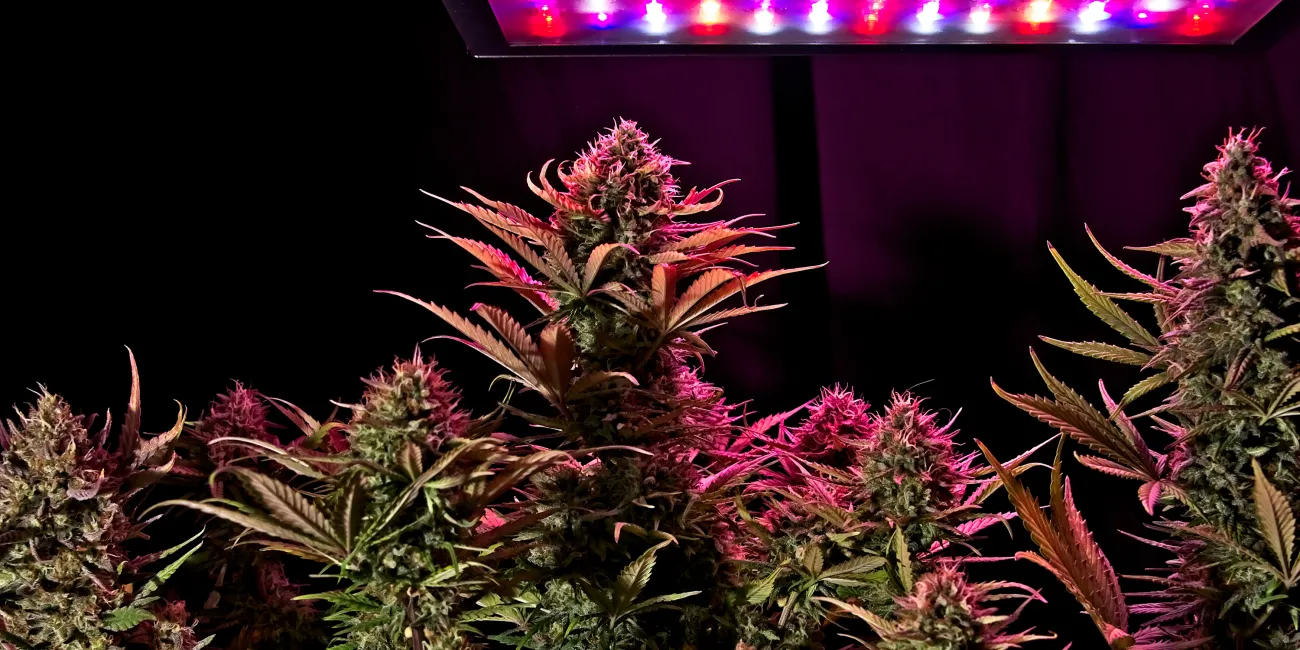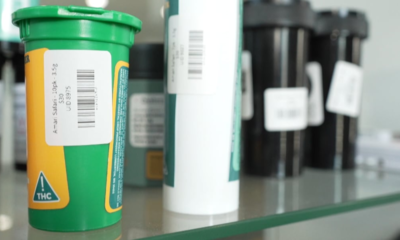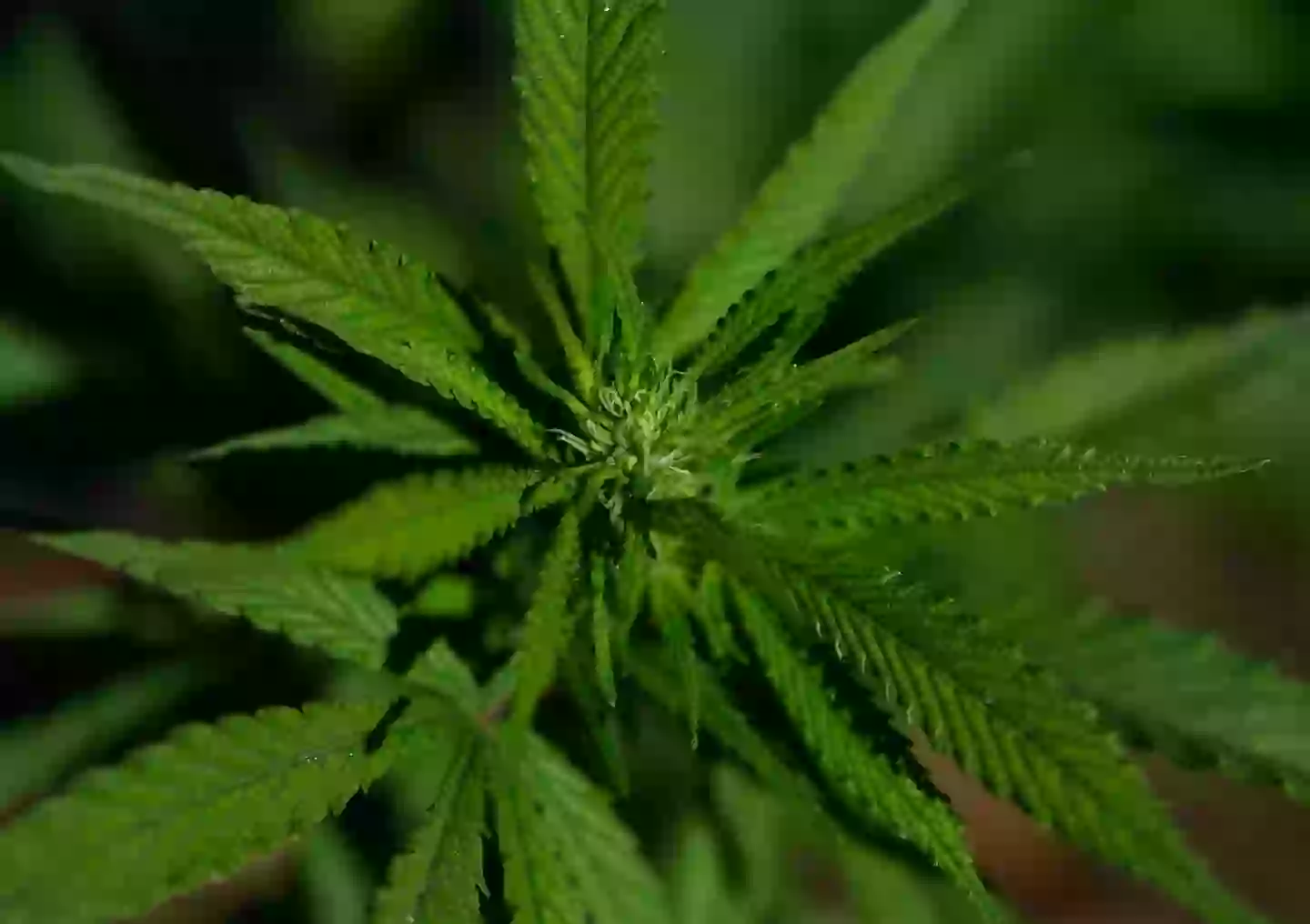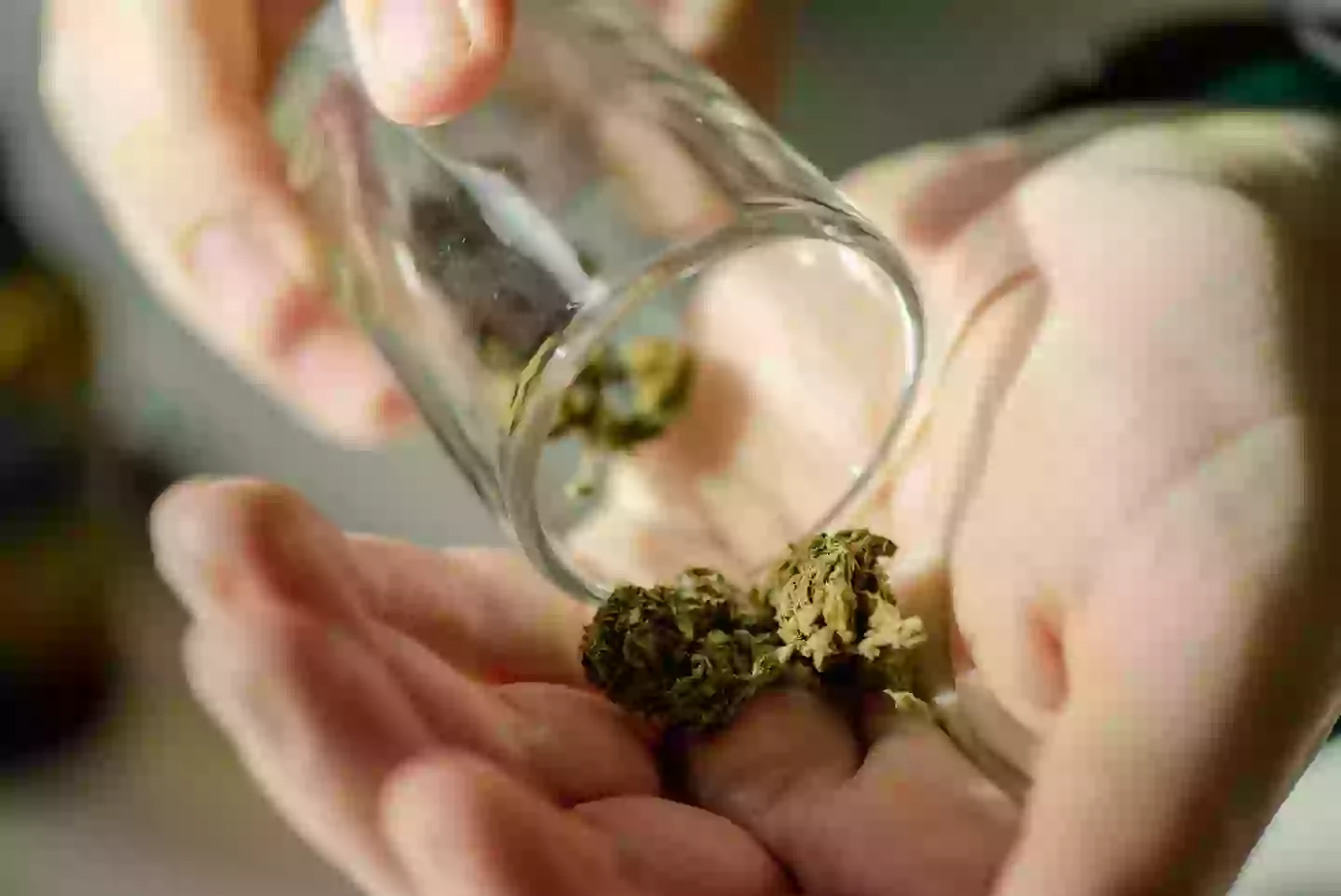Mississippi Cannabis News
Top 10 Issues in the Cannabis Industry for 2025
Published
5 months agoon

1. Cannabis at the Federal Level: All Smoke and Mirrors?
The Potential Rescheduling of Cannabis Persists
Arguably the most significant development on the horizon for the cannabis industry again this year is the possibility of rescheduling marijuana (non-hemp cannabis) under the Controlled Substances Act (CSA). Last August, the US Drug Enforcement Administration (DEA) announced plans to hold an administrative hearing on its proposal to move marijuana from Schedule I of the CSA, the most restrictive category, to Schedule III. The hearing, originally scheduled for December 2, 2024, was pushed back to January 21 after Chief Administrative Law Judge John Mulrooney ruled that the DEA erred in its presentation of witnesses. On January 13, Judge Mulrooney postponed the highly anticipated hearing (discussed in our previous alert) for at least three more months pending resolution of an appeal following allegations of improper conduct by the DEA.
While the appeal remains pending, the delay in reclassification has the potential to have dire consequences on producers, manufacturers, retailers, and consumers. Cannabis companies are again forced to navigate the regulatory and financial changes that accompany a potential DEA rescheduling (discussed in our recent webinar).
Specifically, reclassifying cannabis to Schedule III may promote friendlier banking practices, eliminate the tax burden under Internal Revenue Code Section 280E by extending certain credits or deductions to cannabis businesses, and facilitate medical research by easing regulatory hurdles applicable to Schedule I substances. Whether the appeal will be granted remains unclear. We can expect an update in late April, which will determine whether the hearing continues (the current nominee for the DEA administrator is not pro-cannabis).
One thing we can count on: the Cannabis Group at ArentFox Schiff will continue to monitor developments and provide updates as they become available.
Federal Cannabis Legislation: Will Spring Showers Bring Summer Flowers?
By the end of 2024, several cannabis reform bills — both for and against legalization or rescheduling — were pending before US Congress. However, with the end of the 118th Congressional session and the advent of the new Administration, a majority of these bills have since died. Whether marijuana will be rescheduled in the near future remains to be seen.
The SAFER Banking Act aims to provide the cannabis industry access to financial services by protecting federally regulated financial institutions that serve state-sanctioned cannabis businesses. The bill was introduced in late 2023 but failed to receive a vote before the end of the 118th Congressional session. The bill’s prospect of being revived in the 119th Congressional session is highly unlikely given the Republican trifecta (with only 15 Republicans in the US Senate previously indicating they would support pro-cannabis legislation).
Another bill pending in 2024 was the Marijuana 1-to-3 Act of 2023, which sought to reclassify cannabis under the CSA from Schedule I to Schedule III. Though it was not enacted into law during the last Congressional session, the US Department of Health and Human Services independently initiated a review of rescheduling marijuana under federal law. Such efforts to reclassify cannabis are still (though dormant) underway.
Other bills pending last year failed to pass before the change in Administration and are unlikely to be introduced again this year.[1]
Ultimately, the prospects of new federal cannabis legislation in 2025 appear bleak. Federal cannabis reform was not prioritized under the first Trump Administration, and there is little indication that it will become a priority in his second term. Hence, we can expect little progress to be made at the federal level. However, there is always the possibility of change given the Trump Administration’s strong movement toward eliminating government regulations.
Our Cannabis Group continues to monitor developments as they unfold.
2. Regulatory Updates Across States
Cannabis Smoke and THC Are Now Subject to California’s Proposition 65 — Is Your Company in Compliance?
After three years of proposals, the Office of Environmental Health Hazard Assessment, California’s lead agency that implements Proposition 65, finally announced new amendments to “short-form” warning requirements in effect as of January 1. This update is sure to affect cannabis companies, as both cannabis smoke and tetrahydrocannabinol (THC) are already on the Proposition 65 list of carcinogens or reproductive toxicants and subject to its existing regulations. The new regulations, however, mean that cannabis businesses must abide by certain labelling requirements on products that have yet to be produced. Our team summarized the specific requirements you need to know to protect your business in a recent alert.
Our Consumer Products Group is available to assist with Proposition 65 compliance.
DC’s Regulatory Scheme: A Blunt Message to Illicit Cannabis Shops
Perhaps the most pressing issue on the horizon for the Washington, DC, cannabis market is the March 31, 2025 deadline, mandating that all cannabis establishments be operational and compliant with the District’s regulations. Previously, DC’s regulations exempted cannabis establishments actively navigating the licensing process from enforcement actions. However, as of March 31, all establishments lacking a license will be subject to search and seizure, closure, or fines.
These new regulations are a result of, among other considerations, an ongoing battle between the legal regulated market and the illegal “gifting” market after a 2014 law, known as Initiative 71, legalized the possession of small amounts of marijuana but did not legalize its purchase or sale. To skirt this law, it became common practice to enter a “gifting shop” and receive a cannabis “gift” in return for a store purchase. However, in 2023, legislation designed to expand the District’s cannabis retail market emerged, providing a legal pathway for existing gifting shops.
DC’s nascent legal cannabis sector is still evolving, and this forthcoming phase of enforcement is anticipated to be the most stringent to date. The existing enforcement protocol is extensive and meticulous, encompassing inspections, drug testing, warning notifications, cease-and-desist orders, and closure operations. Beginning April 1, investigators may enter a store, identify an unlicensed product, and order the store’s closure.
The District has intensified its efforts to crack down on illegal shops, closing 34 businesses in the last six months alone, and an additional 24 businesses have ceased operations following warnings. Over 100 establishments are estimated to be unlawfully selling cannabis products in DC.
However, one person’s loss can be another’s gain, as the upcoming deadline and increased enforcement measures are sure to benefit existing legal cannabis businesses. The illegal cannabis shops have been a detriment to compliant dispensaries whose products, while safer, typically incur higher costs. This has not only caused legal dispensaries to struggle financially, but it has also chilled the willingness of investors to participate in the DC cannabis market altogether. Hence, this heightened enforcement effort should help legal sales get back to their peak 2023 level at $38 million.
Ultimately, we can expect a much stronger presence of enforcement and shutdowns within the next month. This should begin to create a more stable regulated cannabis market and open the nation’s capital for greater financial investments this year. If things proceed as DC predicts, there will be around 40 regulated retail shops open by the end of 2025.
New York’s Cannabis Market Continues to Grow Despite Regulatory Uncertainty
New York is one of several states dominating the cannabis industry. The state’s Cannabis Advisory Board shows tax revenues from cannabis sales rising from $42.3 million in the fiscal year ending March 2024 to $161.8 million in the current fiscal year. Thus, despite continued uncertainty in the regulatory space, we can expect an increase in cannabis sales over the coming months.
Though New York legalized the recreational use of marijuana in 2021, its regulatory arm, the Cannabis Control Board, continues to face pushback from cannabis supporters and opponents alike. For instance, last April, the New York Supreme Court held that the state’s regulation prohibiting third-party advertising for cannabis products is unconstitutional and therefore null and void (as discussed in our previous alert).
It remains uncertain what, if any, major implications this ruling will have for the recreational cannabis market in New York. The ruling, however, has not deterred the development of new cannabis companies doing business in the state. As of March, over 300 dispensaries have opened in the state under New York’s Conditional Adult-Use Retail Dispensary (CAURD) license. New York is also increasing the number of licenses available from 275 to over 625 in 2025. Moreover, a new grant program will award up to $30,000 to CAURD retailers for business owners who have, in the past, been impacted by marijuana-related convictions.
In more potentially concerning news, a bill was introduced in the New York Senate on January 8 to amend the state’s cannabis laws by limiting the potency of cannabis to 15% THC in flowers and 25% THC in other cannabis or hemp products. The bill remains under the purview of the Economic Development Committee.
Our Cannabis Group continues to monitor these regulatory developments.
3. State Attempts to Puff Puff Pass Cannabis Legislation
As of the end of February, several bills are already introduced by state legislatures seeking to reform cannabis laws in 2025. Among these are seven states — Hawaii, Indiana, Kentucky, Mississippi, New Hampshire, Tennessee, and Texas — which aim to legalize cannabis for adult use. Moreover, Indiana, Iowa, South Carolina, Tennessee, and Texas have proposed bills that would create comprehensive medical cannabis programs. Finally, Alabama, Iowa, Pennsylvania, and South Carolina have introduced legislation to decriminalize possession. We expect more states to shift toward legalizing cannabis use in 2025.
The legalization of marijuana was unsuccessful in four states during the November 2024 election: Florida, Nebraska, North Dakota, and South Dakota. Despite a majority of Florida voters approving the use of recreational marijuana, an amendment seeking to legalize recreational cannabis use by adults failed to pass. The amendment received 55.9% of the vote. However, unlike most states, Florida requires a 60% voter approval threshold. Perhaps more importantly, this immensely close attempt highlights the growing consensus to legalize marijuana for recreational use, even in conservative states with governors vehemently opposed to such legislation.
Though the results of these ballot measures indicate that voters in some conservative-leaning states are unlikely to approve cannabis for recreational use, the extremely close vote in Florida suggests that at least some states are close to approving recreational use in the near future.
4. Is the CTA Finally Out of the Haze?
The Corporate Transparency Act (CTA) is back in effect, but only for foreign reporting companies. On March 2, the US Department of the Treasury (Treasury) announced that it will not enforce reporting requirements for US citizens or domestic companies (or their beneficial owners). In other words, US citizens and domestic companies need not comply with the CTA’s reporting requirements.
Pursuant to Treasury’s announcement, the CTA will now apply only to foreign entities registered to do business in the United States. These “reporting companies” must provide beneficial ownership information (BOI) and company information to the Financial Crimes Enforcement Network by specified dates. They are also subject to ongoing reporting requirements regarding changes to previously reported information.
To learn more about the CTA’s specific requirements for foreign entities doing business in the United States, please see our prior client alert (note that the deadlines mentioned in the alert have since been modified).
On the legislative front, earlier this year, the US House of Representatives passed the Protect Small Businesses from Excessive Paperwork Act of 2025 (H.R. 736) on February 10, in an effort to delay the CTA’s reporting deadline. The bill aims to extend the BOI reporting deadline for companies formed before January 1, 2024, until January 1, 2026. The bill is currently before the US Senate, but it is unclear whether it will pass in light of the latest updates.
Our Corporate & Securities team is available to assist companies in compiling BOI reports and keeping up with the CTA’s ongoing reporting requirements.
5. Cashed Out or Chasing In? Distressed Cannabis Companies and Alternatives to Bankruptcy
Due to the cannabis industry’s inability to access the US bankruptcy system, the restructuring of cannabis assets mainly occurs through receiverships in state courts, as we discuss here.
Several large multistate operators, including Curaleaf and Verano, have hundreds of millions in debt coming due in 2026. As such, we expect the restructuring industry for cannabis companies to heat up. This is due in part to the uncertain status of marijuana rescheduling and an expensive failed push for legalization in Florida, which will not provide quick relief to cannabis assets carrying substantial amounts of debt.
However, the majority of states and territories that delegalized cannabis have yet to clarify the rules regarding receivership for cannabis companies. Companies considering a receivership in such states may look to general receivership laws, but how courts and regulators are likely to respond remains unclear. As a result, the use of a receivership in these states should be undertaken with additional care and consideration of other alternatives.
Winding down a cannabis business through state receivership laws presents unique challenges due to inconsistent regulations and jurisdictional limitations. Most cannabis companies cannot benefit from access to the federal bankruptcy system, which offers nationwide reach and efficiency. However, with strategic planning, there are effective options for liquidation or reorganization.
Our Financial Restructuring & Bankruptcy team is ready to consult on the best strategies for your company.”
6. Data Privacy and the Cannabis Industry
Ongoing Developments in State Privacy Laws
Cannabis companies will want to be aware of comprehensive data privacy laws taking effect in 2025 as more states aim to protect consumers’ personal data. Five new laws went into effect in January (Delaware, Iowa, Nebraska, New Hampshire, and New Jersey), adding to the 13 state-level comprehensive privacy laws already enacted. These laws, which seek to prevent the misuse of consumer personal information, mandate specific privacy notices, limit certain data collection, and grant individuals more control over their personal information. However, there are notable differences across state policies, which we outline here. Three additional laws become effective this year in Tennessee (July 1), Minnesota (July 31), and Maryland (October 1), and will apply to data processing beginning April 1, 2026. Companies should consult the data privacy laws of each state in which they operate to review and update their data privacy policies and processes to ensure compliance with the new mandates.
Recent Mass Data Breach Spotlights Cybersecurity Threats in the Cannabis Space
Hackers are increasingly creative at leveraging malware and other threats to breach systems and gain access to customers’ data. Cannabis companies are not immune. In a January notice, STIIIZY, a producer and retailer of cannabis products, disclosed that the vendor accounts for their point-of-sale processing services were compromised. In October and November of 2024, an organized cybercrime group obtained access to names, addresses, date of birth, drivers’ licenses and passport numbers, photographs, and transaction histories of approximately 380,000 customers.
Our Privacy, Data Protection & Data Security team is ready to help bring companies into compliance with state and federal data privacy laws.
7. Can(na) We Catch a Break: Tax Considerations for Cannabis Companies
Cannabis companies should be aware of Section 280E of the Internal Revenue Code, which bars cannabis companies from taking certain deductions or applying certain credits otherwise available to businesses in other industries. Specifically, Section 280E applies to businesses involved in the “trafficking” of Schedule I and Schedule II substances prohibited under state or federal law. Thus, if marijuana were rescheduled to a Schedule III substance, this prohibition would no longer apply to cannabis companies — or would they?
Two bills were recently introduced in the House and Senate, respectively, which seek to bar cannabis businesses’ from utilizing these benefits, even if cannabis was rescheduled to Schedule III. S. 471, titled No Deductions for Marijuana Businesses Act, was introduced on February 6, while H.R. 1447, with the same title, was introduced on February 21. It is unclear whether either bill will pass, and some tax experts suggest the bills are doomed given the growing and widespread acceptance of marijuana reform.
To learn more about Section 280E, please visit last year’s alert which discussed the importance of complying with the rule.
Our Tax team is available to assist with your tax-related needs, from litigation to management and administration.
8. Much Ado About Hemp: Increased State Regulation of Hemp-Derived THC Products
In the last year, some states and the federal government have taken an increasingly hostile stance toward hemp-derived products containing THC. California, for example, recently extended a 2024 emergency ban prohibiting the sale of products containing any detectable level of hemp-derived THC. Many other states, including Georgia, Oregon, and Wyoming, also considered or passed legislation in 2024 targeting these products. We can expect to see similar legislative efforts across states this year.
On March 18, Florida legislators introduced Senate Bill 438 which, among other things, limits the sale of THC-infused beverages to establishments properly licensed to sell alcohol. Senators in Texas recently passed Senate Bill 3 which bans all forms of THC, calling it “a poison to our public.” A statement from Texas Lieutenant Governor Dan Patrick in 2024 claimed that retailers across the state “exploited” the law to “sell life-threatening and unregulated” forms of THC. Other states, including Arkansas, Kentucky, and Montana, are considering mandating a third-party distribution model, similar to that used in the alcohol industry, for the hemp industry.
While some in the cannabis industry see these developments as helpful measures to combat the unwelcome competition caused by the sale of unregulated hemp-THC products, others worry that proposals such as third-party distribution models are a step toward a takeover by the alcohol industry.
Our Cannabis Group will continue to provide updates as these developments unfold across states.
9. GenAI in the Cannabis Space: A Budding Relationship
Generative artificial intelligence (GenAI) has integrated into various aspects of our everyday lives since its inception, and we are quickly approaching a time when it will be fully incorporated into a wide variety of cannabis-related functions at every stage of the process — from growing to warehousing to retailing.
Examples of the use of GenAI in the cannabis industry include crop monitoring and optimization, customer behavior analysis, and personalized product recommendations for consumers. Happy Cabbage, a San Francisco, California-based company, services the cannabis industry by providing GenAI software that helps retailers in a variety of areas, including training budtenders, predicting product demand, targeting consumers, and setting prices and stock-keeping units. We can expect the potential impact of GenAI on the cannabis industry to continue to unfold this year as GenAI models rapidly improve. However, there are certain legal considerations for cannabis businesses to consider before leveraging the benefits of GenAI, as summarized in our previous alert here.
Our AI, Metaverse & Blockchain team is available to advise on emerging technologies in the GenAI space.
10. Alternatives to Trademark Protection for Cannabis Products
Given cannabis’ status as a Schedule I substance under the CSA, most cannabis products are ineligible for federal trademark protection. This is because the US Patent and Trademark Office, a federal agency, bars trademark registration for goods or services that are unlawful under federal law, even if legal under state law. Hemp-derived products, however, are eligible for trademark protection if they comply with the Agriculture Improvement Act of 2018 (i.e., containing no more than 0.3% of delta-9 THC). The rescheduling of marijuana under federal law may open the door to federal trademark protection.
Though federal trademark protection remains unavailable, some states allow for trademark registration of cannabis products — though such protection does not extend past state lines. However minimal in comparison to federal protection, cannabis companies should consider obtaining state-level protection against trademark infringement for their products.
In addition, cannabis companies may be able to obtain copyrights for original works of authorship such as artwork on product labels and packaging designs. A cannabis company may also establish trademark protection through common law trademark rights, as long as the trademark is in actual use in commerce. However, common law trademark protection is often limited to a specific geographic area.
By leveraging alternatives to federal trademark protection, cannabis brands can protect their intellectual property as the industry continues to evolve.
Our Trademark team is available to discuss and develop your company’s brand protection needs.

Author: mscannabiz.com
MScannaBIZ for all you Mississippi Cannabis News and Information.
You may like
-


Dozen arrested after south Mississippi bust for illegal sales to underage customers
-
US marijuana laws explained as Donald Trump reveals plans for change
-


D.C. board rejects ANC 5A challenge to new medical cannabis retailer
-


AG opinion on hemp triggers legal chaos for sellers, consumers
-


Mississippi Medical Marijuana Association pushing for policy changes
-
Mississippi Cannabis Program Adding 50 Patient IDs Per Day – Ganjapreneur
Mississippi Cannabis News
Dozen arrested after south Mississippi bust for illegal sales to underage customers
Published
17 hours agoon
September 14, 2025
An investigation into south Mississippi businesses selling “alcohol, dangerous illegal vapes, THC edibles,” and other age-restricted or illegal items to underage customers has resulted in at least a dozen arrests with more possible, according to law enforcement.
An announcement by the Perry County Sheriff’s Office said deputies began an investigation in early 2024 after fielding complaints that some businesses in the county were purposely allowing individuals under the age of 21 to purchase age-restricted products.
Sheriff Jacob Garner said as the investigation unfolded, it quickly became clear that the issue was not restricted to Perry County. Law enforcement in nearby Forrest, Lamar, Marion, Greene, Jefferson Davis, and Jones counties had received similar complaints about businesses in their jurisdictions.
Local agencies teamed up with the U.S. Drug Enforcement Agency for over a year’s worth of identifying subjects, initiating traffic stops, and fielding more calls for service. It culminated on Sept. 11 after 20 search warrants were carried out, with 12 individuals being arrested for their involvement in the businesses selling alcohol, tobacco, and THC to minors.
RELATED: Parents urged to talk with students about tobacco risks
“Anyone who chooses to open a business in Perry County for the purpose of selling illegal narcotics, vapes, or THC products to children or adults will be arrested and prosecuted,” Garner said. “These items – disguised as safe or legal – are destroying lives and endangering the health and safety of our citizens. Business owners profiting off the harm of our children and adults in our county will be prosecuted to the fullest extent of the law.”
Garner added that many of the defendants, while operating in different counties, were working in tandem. The Mississippi Bureau of Narcotics, the Mississippi Bureau of Investigation, and the Mississippi Highway Patrol aided in the investigation that remains active.
The following list of arrests and charges has been announced by the involved law enforcement agencies:
- Khaled Alhamidi, 55, of Petal: Two counts of aggravated trafficking of a controlled substance, trafficking while in possession of a firearm, and conspiracy to sell a controlled substance.
- Akram Alhamidi, 25, of Petal: Two counts of aggravated trafficking of a controlled substance, trafficking while in possession of a firearm, and conspiracy to sell a controlled substance.
- Omar Obaid, 40, of Hattiesburg: Two counts of aggravated trafficking of a controlled substance.
- Gaizan Abubaker, 37, of Houma, La.: Two counts of aggravated trafficking of a controlled substance.
- Rami Selah, 32, of Petal: Two counts of aggravated trafficking of a controlled substance, trafficking of a controlled substance while in possession of an enhanced firearm.
- Bassel Saleh, 53, of Petal: Two counts of aggravated trafficking of a controlled substance.
- Mark Shaibi, 24, of Petal: Two counts of aggravated trafficking of a controlled substance, trafficking of a controlled substance while in possession of a firearm.
- Gabr Al-Gabri, 36, of Petal: Two counts of aggravated trafficking of a controlled substance, trafficking of a controlled substance while in possession of an enhanced firearm.
- Basel Rashad, 30, of Petal: Two counts of aggravated trafficking of a controlled substance, trafficking while in possession of a firearm.
- Anmed Elgabry, 30, of Petal: Two counts of aggravated trafficking of a controlled substance, trafficking of a controlled substance while in possession of an enhanced firearm.
- Mohammed Riyadh, 31, of Hattiesburg: Two counts of aggravated trafficking of a controlled substance.
- Ahmedou Mohamedlaamar, 22, of Perry County: Aggravated trafficking of a controlled substance.

Author: mscannabiz.com
MScannaBIZ for all you Mississippi Cannabis News and Information.
Mississippi Cannabis News
US marijuana laws explained as Donald Trump reveals plans for change
Published
4 days agoon
September 12, 2025
Donald Trump is reportedly looking at reclassifying marijuana as a less dangerous drug in the US.
According to an article in the Wall Street Journal, the 79-year-old president is ‘looking at’ making a huge change, which would make it easier to buy and sell weed, making the multibillion-dollar industry more profitable.
The publication’s sources claimed that during a recent fundraiser held at his New Jersey golf club, where tickets for the event went for a whopping $1 million each, the Republican leader first spoke of the potential plans.
He allegedly said he was ‘looking at’ possibly changing the classification of marijuana from a Schedule I controlled substance to a Schedule III substance.
In simple terms, this doesn’t mean it would make the drug completely legal across the US, but it would help ease restrictions on it.

Donald Trump is reportedly considering whether to reclassify marijuana in the US (Bloomberg/Getty Images)
At the event, speaking of tweaking the federal restrictions for the drug, Trump allegedly said: “We need to look at that. That’s something we’re going to look at.”
Then, according to The Telegraph, speaking at a press conference on Monday, the US president affirmed: “We’re looking at reclassification, and we’ll make a determination over, I’d say, the next few weeks.”
He reportedly added that the decision is ‘very complicated’ – so, let’s break it down.
How do US marijuana laws work?
At a federal level, marijuana remains illegal in the US as per the 1970 Controlled Substances Act, however, many states have made their own rules for cannabis use.
As we mentioned earlier, it’s federally classified as a Schedule I drug – this means that federal law considers it to have a ‘high potential for abuse’ and ‘no currently accepted medical use in treatment in the United States’.
But, despite its federal classification, 24 states plus the District of Columbia have fully legalised weed, meanwhile others have opted to only allow it for medicinal purposes.
Cannabis legalisation in individual states can be done in a number of ways, ranging from fully illegal to legal for both medicinal and recreational use.
If you’re in a state that has completely legalised recreational marijuana and you’re 21 or older, you have the right to use cannabis products for your own personal enjoyment.
However, this doesn’t always mean it’s legal to purchase – confusing, I know.
For example, while it’s illegal to buy marijuana in Washington, DC, it’s legal for anyone 21 and older to possess up to two ounces of it and grow up to six marijuana plants in the district.
So essentially, it’s all down to the state you’re in and their specific regulations.

America’s cannabis laws can be a tricky subject to wrap your head around (Justin Sullivan/Getty Images)
What would happen if marijuana became a Schedule III drug?
If Trump were to go ahead and reclassify marijuana as a Schedule III drug, this would be a pretty big change up and down America.
According to the US government’s website, Schedule III drugs are defined as drugs ‘with a moderate to low potential for physical and psychological dependence’ and their ‘abuse potential is less than Schedule I and Schedule II drugs’.
Some examples of Schedule III drugs are products containing less than 90 milligrams of codeine per dosage unit, such as Tylenol with codeine, ketamine, anabolic steroids, and testosterone.
Meanwhile, Schedule I drugs are defined as drugs with no currently accepted medical use and a high potential for abuse.
Some examples include heroin, LSD, ecstasy, and as of right now, marijuana.
It’s important to note that the switch up would not make marijuana completely legal – it would just help ease restrictions and create more opportunities for medical uses and possible tax breaks for marijuana companies.

The Republican leader is said to be ‘looking at’ possibly switching marijuana from a Schedule I drug to a Schedule III drug (Emilija Manevska/Getty Images)
Which US states is marijuana currently legal in?
States where marijuana is fully legal:
- Alaska
- Arizona
- California
- Colorado
- Connecticut
- Delaware
- District of Columbia
- Illinois
- Maine
- Maryland
- Massachusetts
- Michigan
- Minnesota
- Missouri
- Montana
- Nevada
- New Jersey
- New Mexico
- New York
- Ohio
- Oregon
- Rhode Island
- Vermont
- Virginia
- Washington
States where marijuana is legal for medical purposes only:
- Alabama
- Arkansas
- Florida
- Georgia (CBD oil only)
- Hawaii
- Indiana (CBD oil only)
- Iowa (CBD oil only)
- Kentucky
- Louisiana
- Mississippi
- New Hampshire
- North Dakota
- Oklahoma
- Pennsylvania
- South Dakota
- Tennessee (CBD oil only)
- Texas
- Utah
- West Virginia
- Wisconsin (CBD oil only)
- Wyoming (CBD oil only)

Author: mscannabiz.com
MScannaBIZ for all you Mississippi Cannabis News and Information.
Mississippi Cannabis News
D.C. board rejects ANC 5A challenge to new medical cannabis retailer
Published
4 days agoon
September 12, 2025
D.C. board rejects ANC 5A challenge to new medical cannabis retailer in Ward 5
The D.C. Alcoholic Beverage and Cannabis Board has rejected ANC 5A’s bid to reinstate its protest against a new Clinical Solutions medical cannabis dispensary in Ward 5, ruling that the ANC’s objections about daycare proximity and safety lacked the specific statutory grounds required to proceed; the license application remains on track, though the decision can still be appealed.
- Alt Sol was featured by wtop News.
- Catch up on today’s ABC Board meeting: watch, agenda.
- Sept. 24, Black Cannabis Week’s D.C. event, “From Prohibition to Policy.”
- A GOP-led House committee is advancing a bill to repeal Washington, D.C.’s Second Chance Amendment Act—which automatically expunges past cannabis possession records—framing the move as part of a broader “restoring law and order” initiative.
Workers protest at Maryland dispensary grand reopening over labor disputes
Cannabis workers and community members protested outside The Apothecarium’s grand reopening in Cumberland, Md., on Sept. 5, alleging the company engaged in union-busting and stalled contract negotiations since employees voted to unionize last year. UFCW Local 27 says workers are demanding fair pay and just cause protections, while the company has not yet issued a response.
Virginia’s 2025 gubernatorial race may decide future of legal cannabis market
Over half of Virginians have used cannabis, but the state currently lacks a legal retail market, though a bipartisan commission is studying its potential and the issue is expected to hinge on the 2025 gubernatorial election. Democratic candidate Abigail Spanberger supports establishing a regulated retail market to boost revenue and public safety, while Republican nominee Winsome Earle-Sears opposes legalization, citing cannabis as a gateway drug.
ICYMI: D.C. Dispensaries Boom, Trulieve Expands, Virginia Cannabis Hits a Turning Point
East Coast Roundup
Once a dominant force in Massachusetts‘ cannabis industry, Fitchburg-based Rev Clinics supplied products to approximately 75% of the state’s dispensaries. However, the company has faced significant challenges leading to its collapse.
A CBD shop in Connecticut shut down following allegations of illegal cannabis sales. The owner has agreed to a settlement.
New York’s licensed cannabis sales surpassed $2.09 billion, with over $1 billion generated in 2025 alone, indicating a robust and expanding market despite market turmoil.
The New York State Office of Cannabis Management announced the transition to the Metrc system for tracking cannabis from seed to sale will start in 2026.
Delaware’s recreational cannabis market achieved $7.3 million in sales during its inaugural month, signaling a strong consumer demand.
The Massachusetts Attorney General certified 44 ballot proposals for the 2026 election, including one aiming to repeal the state’s 2016 law legalizing recreational marijuana sales. This proposal, led by Sudbury resident Caroline Alcock Cunningham, seeks to shut down recreational dispensaries and impose civil penalties for public possession exceeding one ounce.
Culture & More
A new report highlights a significant rise in cannabis use among Americans aged 65 and older, with a 46% increase between 2021 and 2023.
USF Credit Union has introduced ‘Verde,’ a cannabis banking program aimed at providing financial services to the legal cannabis industry in Florida.
A new study found that THC can reach the human egg and may affect female fertility. Women who had THC in their follicular fluid showed a small increase in egg maturity but a lower rate of healthy embryos.
Around the Country
Mississippi’s medical cannabis program is expanding rapidly, with an average of 50 new patient cards issued daily. As of August 2025, the state has approximately 50,000 active cards, up from 40,000 in June 2024.
Texas retailers are relieved after the state legislature failed to pass a ban on THC products during the second special session. Despite this, Lt. Gov. Dan Patrick remains committed to a total ban, citing concerns over youth access.
California’s use of drones to monitor illegal cannabis cultivation led to unintended consequences, including the targeting of residents without cannabis operations. In Sonoma County, drone surveillance resulted in fines, evictions and legal battles for individuals who had no cannabis involvement.
From the swamp
Former Trump advisor Kellyanne Conway is reportedly a strong proponent of rescheduling cannabis, according to a GOP congressman. Her support adds a notable voice to the ongoing debate over federal cannabis policy reform.
OPINION: A Washington Post opinion piece argued that a loophole in the 2018 Farm Bill allows children access to psychoactive hemp-derived substances like delta-8 and delta-10 THC.
Employment Opportunity: DC Licensed Internet Retailer Dispensary Now Hiring. Contact info@getlocald.com to Learn More.

Author: mscannabiz.com
MScannaBIZ for all you Mississippi Cannabis News and Information.

Six hurt in shooting at marijuana event in SF's Bayview

Kentucky Medical Marijuana Dispensaries Should Be Stocked With Products Ready For Sale By Next Month, Top State Official Says

Deputies: 3,500 child sex abuse images, marijuana grow operation found in NC home raid

Regulators Ready to Enforce Cannabis Laws on Hemp THC Retailers in Maryland

California reaps over $250 million from 2nd Quarter cannabis sales

Meet the World’s First Cannabis Rugby Team: Crewmen 7’s Tackle Stigma Head-On

Texas Supreme Court Refuses To Take Up Marijuana Case Challenging State’s Rejection Of Local Decriminalization Law

California Passes Bill to Ban Intoxicating Hemp Products Outside Cannabis Market

Pending Federal Hemp Legislation Could Reshape The Legal Industry By Banning Some Products (Op-Ed)

Verano Proposes to Redomicile Parent Company From British Columbia to Nevada

8,000 cannabis plants seized from illegal Bradford grow-op

New York Lawmakers Schedule Psychedelics-Focused Hearing To Discuss ‘Medicinal Value And Risks’ Of Psilocybin

Curaleaf Opens Cannabis Dispensaries in Florida, Ohio

How to Protect Your Outdoor Cannabis Crops From Pests

Feds provide anti-cannabis group a platform to bash legalization (Newsletter: September 15, 2025)

Dozen arrested after south Mississippi bust for illegal sales to underage customers

The Toking Traveler: Why Amsterdam Weed Is Mostly Boof

Arkansas Medical Marijuana Sales Are On Track To Set A New Annual Record

When Cannabis Brands Blur Into Youth Culture, Regulators Notice: Lessons From Tobacco’s Past

Rhode Island Marijuana Dispensary License Application Process Officially Launches

Middle school student found with cannabis in bookbag, Charles County deputies say

Smugglers who brought drugs on an industrial scale into Wales jailed

Attorney pulls out bag of cannabis in NC Supreme Court hearing

WHO AM I? Man wanted for New Bern cannabis store theft

Alert: Department of Cannabis Control updates data dashboards with full data for 2023

Connecticut Appoints The US’s First Cannabis Ombudsperson – Yes there is a pun in there and I’m Sure Erin Kirk Is Going To Hear It More Than Once!

5 best CBD creams of 2024 by Leafly

EU initiative begins bid to open access to psychedelic therapies
New Study Analyzes the Effects of THCV, CBD on Weight Loss

Free delta-9 gummies from Bay Smokes

5 best autoflower seed banks of 2024 by Leafly

Discover New York’s dankest cannabis brands [September 2024]

Press Release: CANNRA Calls for Farm Bill to Clarify Existing State Authority to Regulate Hemp Products

Curaleaf Start Process Of Getting Their Claws Into The UK’s National Health System – With Former MP (Resigned Today 30/5/24) As The Front Man

May 2024 Leafly HighLight: Pink Runtz strain

Local medical cannabis dispensary reacts to MSDH pulling Rapid Analytics License – WLBT

Recreational cannabis on ballot for third time in South Dakota

5 best THC drinks of 2024 by Leafly

Horn Lake denies cannabis dispensary request to allow sale of drug paraphernalia and Sunday sales | News

Mississippi city official pleads guilty to selling fake CBD products

6 best CBD gummies of 2024 by Leafly

Nevada CCB to Accept Applications for Cannabis Establishments in White Pine County – “Only one cultivation and one production license will be awarded in White Pine County”

The Daily Hit: October 2, 2024

5 best delta-9 THC gummies of 2024 by Leafly

Weekly Update: Monday, May 13, 2024 including, New Guide for Renewals & May Board meeting application deadline

PRESS RELEASE : Justice Department Submits Proposed Regulation to Reschedule Marijuana

5 best THCA flower of 2024 by Leafly

People In This State Googled ‘Medical Marijuana’ The Most, Study Shows
Trending
-

 California Cannabis Updates1 year ago
California Cannabis Updates1 year agoAlert: Department of Cannabis Control updates data dashboards with full data for 2023
-

 Breaking News1 year ago
Breaking News1 year agoConnecticut Appoints The US’s First Cannabis Ombudsperson – Yes there is a pun in there and I’m Sure Erin Kirk Is Going To Hear It More Than Once!
-

 best list1 year ago
best list1 year ago5 best CBD creams of 2024 by Leafly
-

 Business12 months ago
Business12 months agoEU initiative begins bid to open access to psychedelic therapies
-

 cbd1 year ago
cbd1 year agoNew Study Analyzes the Effects of THCV, CBD on Weight Loss
-

 Bay Smokes1 year ago
Bay Smokes1 year agoFree delta-9 gummies from Bay Smokes
-

 autoflower seeds12 months ago
autoflower seeds12 months ago5 best autoflower seed banks of 2024 by Leafly
-

 cannabis brands12 months ago
cannabis brands12 months agoDiscover New York’s dankest cannabis brands [September 2024]

